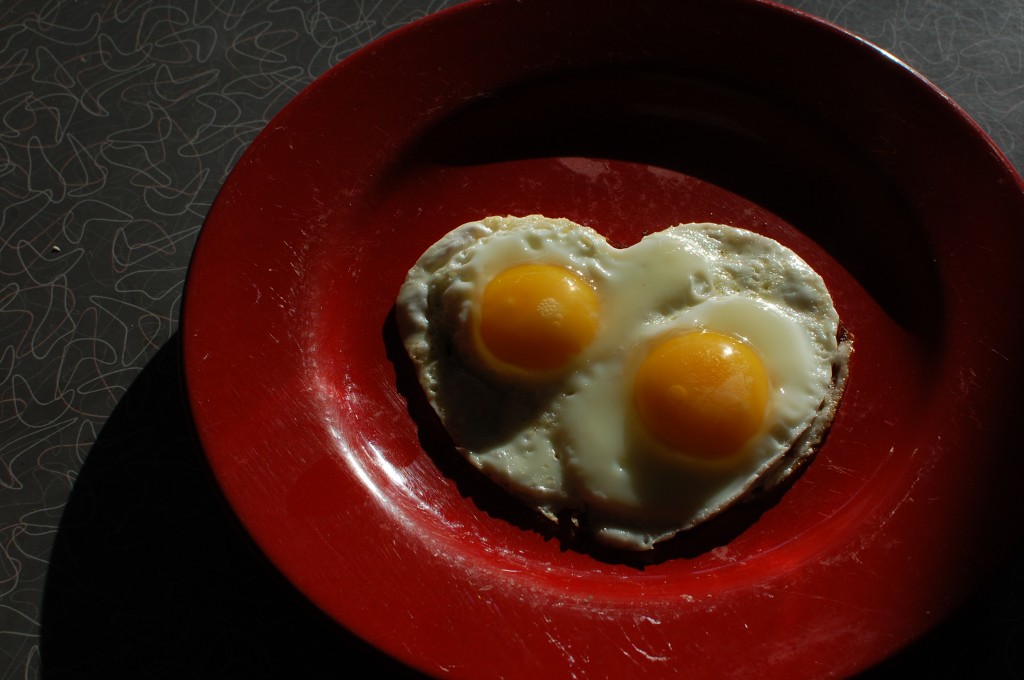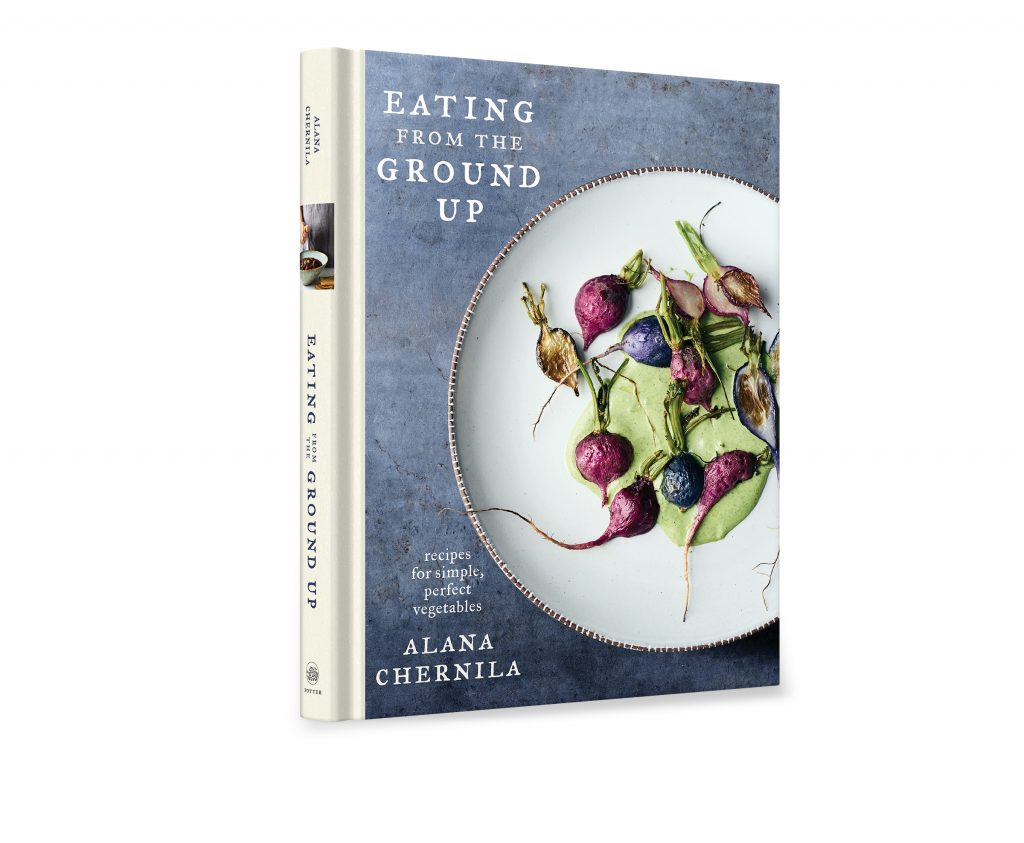Today, all over the country, people are taking action to Occupy our Food Supply. Go here to learn more, or if you are over on twitter, check in on the conversation through #F27. It’s a good one, and very worth your time.
I want to tell you about an event I attended back in January, a Tedx Manhattan event called “Changing the Way We Eat.” I don’t make it out of the kitchen much, and I showed up, charged by the city, ready for inspiration and direction. I was in New York with my friend, Elizabeth, and we tromped through Manhattan in the snow and ice to a lovely building filled with good light, local food, Chemex coffee.
I have to tell you that after a morning of talks that comprised the “Issues” section of the day, I had lost both appetite and optimism. Everyone filed into the dining room in search of an interesting stranger to sit beside at lunch, abuzz with the information of the morning. I stood under the stairwell and called Joey. He had just been out in the snow with the girls. Then they’d made pancakes.
“How’s it going? Are you feeling all inspired?”
I told him the truth. Headache. Too much coffee. Too much information about the food system in one morning. “And how is that food system?” he asked me with what I could hear was a big smile across his face.
“Oh, you know. Totally screwed.”
It’s nothing I didn’t know. The morning had been mostly about meat. One after the other, doctors, activists and organizers got up to talk about the meat industry. There was no good news. The majority of meat production in this country is so inhumane, we wouldn’t even want our children to be in the room when it’s being discussed. It’s dirty, and disgusting, and in order to make sure we’re not eating diseased animals, we’re pumping them full of drugs when they’re alive. But they’re diseased anyway, because the the bacteria are beating the drugs. Eating meat is dangerous. Unless we are buying animals from a local farmer we trust, we can’t feel safe about feeding meat to our families.
There’s more, of course. About the farmers who have become indentured servants to the big poultry companies. About the damage to the land and the damage to our bodies. About the lack of meaning behind food labeling (“ALL-NATURAL!”) and the general mess of how we buy food.
It’s hard to feel optimistic. Luckily, lunch usually helps.
We sat at long tables with sustainably raised chicken pot pie and kale salad. I pushed through my headache, drank a glass of water, decided to change my mood. The woman next to me had come all the way from Arizona. She was a professor in a program where she was teaching kids who heading into big agriculture. These are the future executives of Monsanto and Cargill.
“I’m slowly trying to teach them about responsible labeling. It’s hard work, but they get it.”
And with that, optimism creeps back in. I avoided the coffee table on my way back into the theater and I sat down for the second part of the day: Impact.
Before you read any further, watch this. Then you can see how it really changed, how heavy shoulders got a bit lighter and the actual steps to action got a little clearer. Because sometimes, sometimes when a system is that broken, it’s hard to know what to do.
And so today, today on this day of action, I want to talk about ways to Occupy our Food Supply on the smallest levels. There is all sorts of good information here on ways to act, and how to occupy Cargill, and if that’s where you are, then Yes! I am cheering you on. But right here, I’m going to talk about occupying our very own kitchens. Because for me, this is where change begins, and even the smallest choice in changing how we relate to food is activism.
For, OCCUPY OUR FOOD SUPPLY, if you will, a list…
5 Ways to Occupy our own Kitchens
1. Eat less meat, and know the source of the meat you do eat.
This step gets at many issues at once. By reducing our meat consumption, we increase our own health, bring more balance to our diets, and protect ourselves from a whole lot of scary bacteria (as well as toxins) that are thriving in the messy meat system. Find a source of meat that you trust, and although it might be more expensive, eating less of it will make up for the difference. Even more, supporting a local farmer will help them to do more of the essential work that they do in the reclamation of our food system.
2. Grow something. Anything.
Start a garden if you can, even a tiny one. Grow herbs in the windowsill, tomatoes on the fire escape. These small actions of growing do so much, coming together to fight against the large scale crap that’s growing most of the food in the supermarket. Support those who are growing food around you, and show your children where vegetables come from.
3. Cook with your children, or any children in your life.
They want to cook. They want to be in the kitchen. We are a generation that has grown up cooking less than most people who came before us, but it’s easy to fix that. Bring your kids into the kitchen, and show them how to chop vegetables. Let them choose the menu. Let them feel what it is to feed people. Let them make dinner.
4. Take a few moments in your day to appreciate the food you are eating.
Taste your food. Chew your food. It seems obvious, I know! But most of the time, there’s just too much going on around us (around me! I’ll say it!) to focus on the taste and the wonderfulness of the food on our plate. If you don’t already do it, some sort of grace or gratitude moment before you eat can bring this on with ease.
5. Make something at home that you would normally buy.
Oh, you know how I like this one. The simplicity of actually taking the food system into our own hands? It’s that easy. If you’re inspired, make your own yogurt. Skip the plastic containers, the oil it takes to transport them to you. Make your own crackers, and your family will cheer. You don’t have to make everything! But make something that you’ve never made before. See how it’s done. It will (almost) always be easier than you think it is, I promise!
So how about it? Will you stand with me in this occupation? Let me know how you’re doing it. Let’s make this list longer!
I’ll leave you with a few thoughts from those who are speaking today…
From Vandana Shiva, Indian physicist and internationally renowned activist,
“Our food system has been hijacked by corporate giants from the Seed to the table. Seeds controlled by Monsanto, agribusiness trade controlled by Cargill, processing controlled by Pepsi and Philip Morris, retail controlled by Walmart – is a recipe for Food Dictatorship. We must Occupy the Food system to create Food Democracy.”
From Raj Patel, activist, academic and author of The Value of Nothing,
“It’s hard for us to imagine life without food corporations because they’ve made our world theirs. Although we think food companies make food for us, in almost every way that matters, we – and our planet – are being transformed to suit food companies. From their marketing to children and exploitation of workers to environmental destruction in search of profit, the food industry represents one of the most profound threats to sustainability we face today.”
From Marion Nestle, professor and author of What to Eat and Food Politics: How the Food Industry Influences Nutrition and Health,
“While the food industry digs in to fight public health regulations, the food movement will continue to attract support from those willing to promote a healthier and more sustainable food system. Watch for more young people going into farming and more farmers’ markets, farm-to-school programs, school meal initiatives, and grassroots community efforts to implement foodprograms and legislate local reforms. There is plenty of hope for the future in local efforts to improve school meals, reduce childhood obesity, and make healthier food more available and affordable for all.”
From Michael Ableman, farmer and founder of the Center for Urban Agriculture in Goleta, California,
“We are focusing on what we are for, as much as what we are against. We are re-occupying our soils with life and fertility and our communities with good food. We are working to rebuild the real economy, one based on soil and seeds and sunlight and individuals and communities growing together.”


We are starting a container garden this year – something I’ve wanted to do for ages, but hadn’t been able to up til now. My girls are beyond excited, thinking about growing some of our own food, and I’m thrilled both for the financial savings (fresh produce is so expensive!) and the superior quality of homegrown veggies vs storebought.
The meat is a tricky one for us – we eat it rarely, but when we do, we buy it from the grocery store. Mostly because we don’t know any farmers around here to buy from directly – we live in a pretty industrial area. I have considered going completely vegetarian, but it does seem harder to find recipes we all like without using at least a little bit of meat.
Meat can be a hard one! But I think a lot of it is just about getting connected with a farmer or two. Even in cities (especially in cities, these days!), I’d bet there are some farmers outside the city who are looking for customers to support their business. They might even be selling though a store near you. Some farmers even set up meat CSA’s where you can get a certain amount of meat every month. There are a few resources out there to find your farmer! I’d start with localharvest.org.
YOU GO GIRL!!!!
we all need to do something, any little thing.
we made our own version of your “pie crust crackers” (graham crackers), your homemade granola #2, and a lovely loaf of cinnamon raisin bread in honor of occupy the food supply … also made a donation to the edible school yard project (edibleschoolyard.org) … here’s hoping that some of this horrifying information about our food supply (especially meat and monsanto), that is all out there and available, starts to become more mainstream. thanks for being such a light in all of this alana. we love your blog all the way from ca, and can’t wait for your book!
🙂 Pie Crust crackers! That was just about my favorite thing when I was a kid. Thanks for contributing to the list here, and for your sweet words, too.
Very descriptive post, I enjoyed that bit.
Will there be a part 2?
You are SO right! Everything!
You’ve just hit on how I feel today.
I spent the morning bringing one of my girls to various Farmers Markets. She heard me talk to the farmers about their foods, eggs or meats. We bought food. We bought carrots, since it is about to get hot here and those farmers had a great deal of carrots that would go bad. So, we eat carrots! We’ll preserve what we can’t eat soon. She started GETTING it… at age 5.
She helped make bread and helped with the meal.
I don’t want to hear people complain about time. I really don’t. I work full time, have young twins and blah, blah, blah… everyone is busy. What you eat is important. It MAKES you. I believe there is even a popular saying about that *wink*
Thanks for spreading that word.